Ratchaburi, January 20, 2023(AseanAll)– On the occasion of the arrival of the Chinese New Year(Spring Festival), on January 19 or the 28th of the 12th lunar month ,Thai Prime Minister Prayut Chan-o-cha attended the opening ceremony of Thailand's 2023 "Happy Spring Festival" - the celebration of the New Year of the Rabbit in Ratchaburi, Thailand,which will continue until January 23.
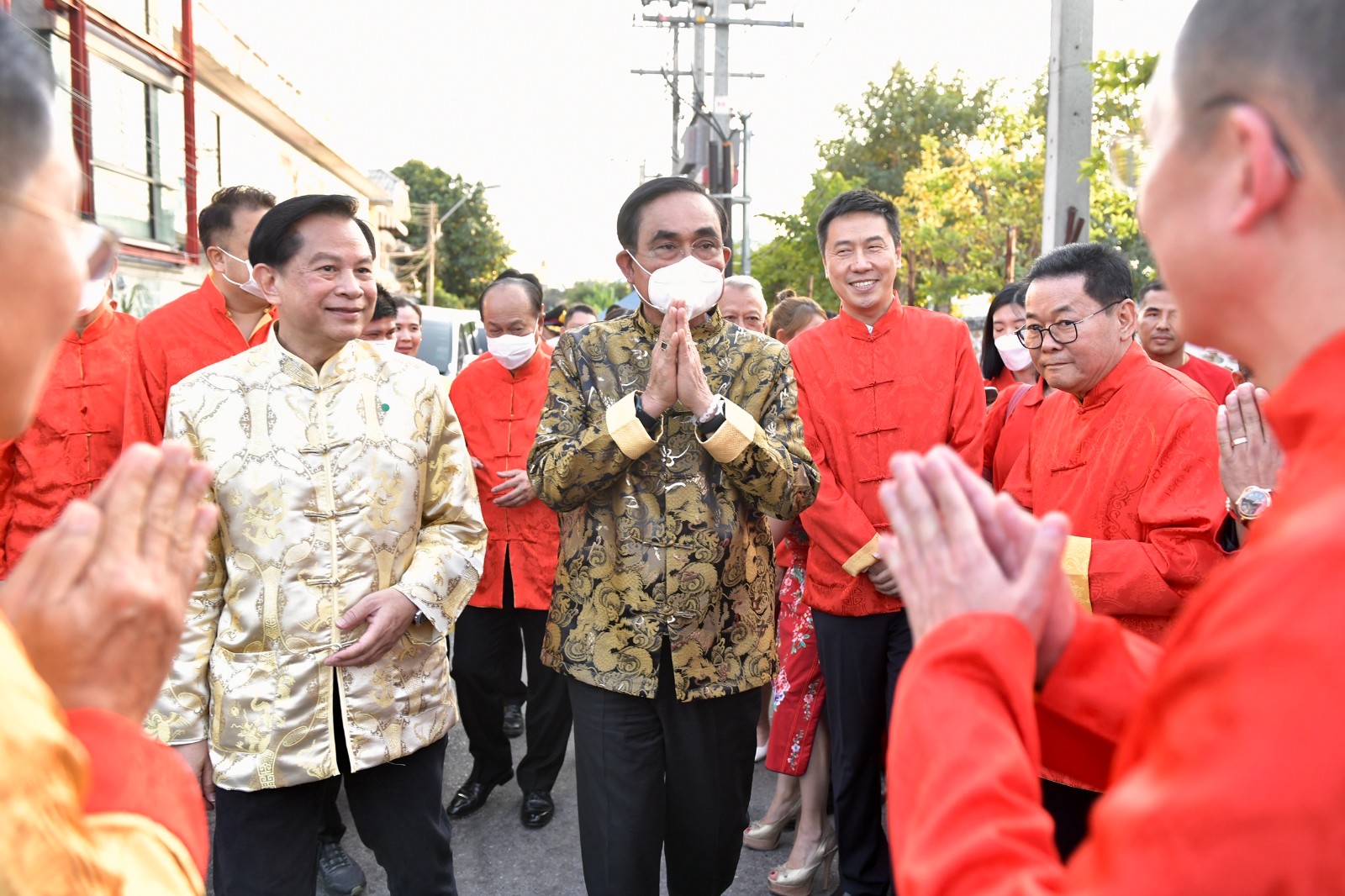
Yang Xin, the interim representative of the Chinese Embassy in Thailand, presented Prayut with the mascot of the Year of the Rabbit in 2023 "Happy Spring Festival". Prayut held the auspicious rabbit in his hand and said "Happy New Year and Happy Wealth" to the people of the two countries in Chinese.
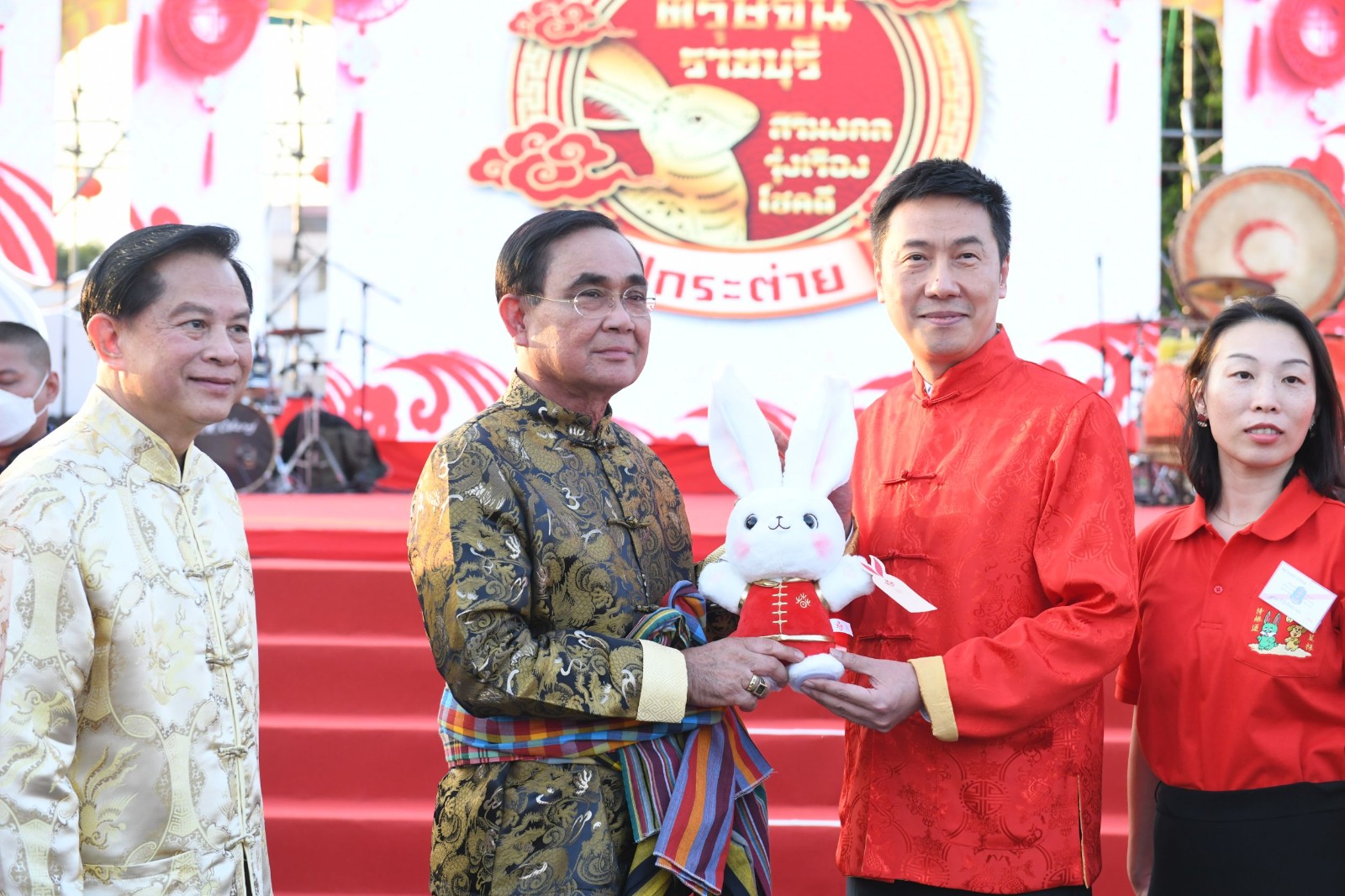
At the opening ceremony, Prayuth delivered an effusive speech. He said that Thailand-China friendship goes back to ancient times and Lakpi was one of the major settlements of Chinese in Thailand in history. Thai people have a tradition of grand celebration of the Spring Festival. The Thai and Chinese governments have held "Happy Spring Festival" activities for many years to carry forward the common cultural gene that flows in the blood of the two peoples and greatly tighten the people-to-people ties between Thailand and China. Since the establishment of diplomatic ties 48 years ago, Thailand-China cooperation in various fields has deepened continuously, benefiting the two peoples.
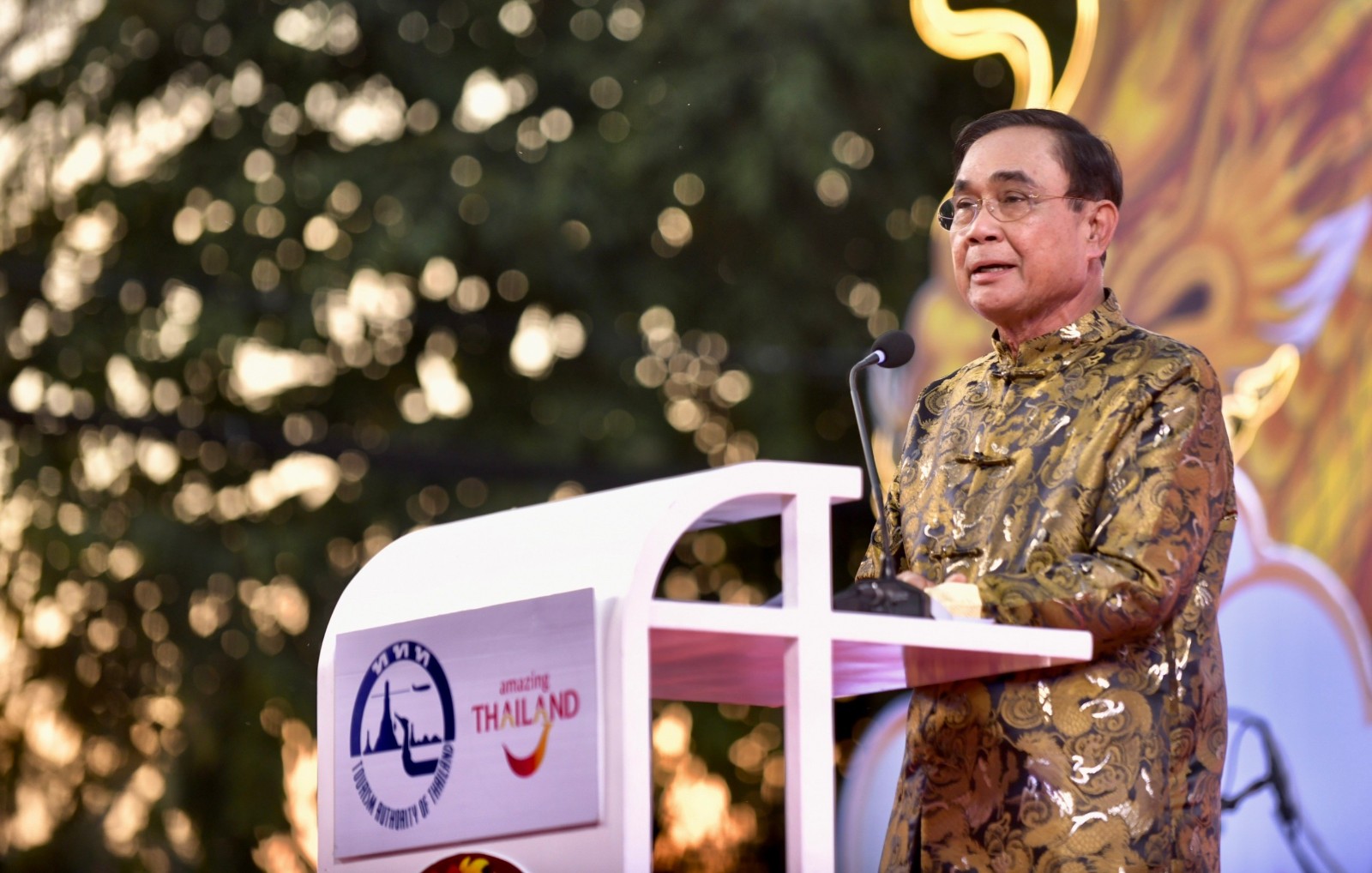
Prayuth pointed out that China has recently optimized and adjusted its epidemic prevention policy, and Thailand-China cultural and people-to-people exchanges have ushered in new opportunities for development. The Thai people have made all preparations and are eagerly looking forward to the return of Chinese tourists.
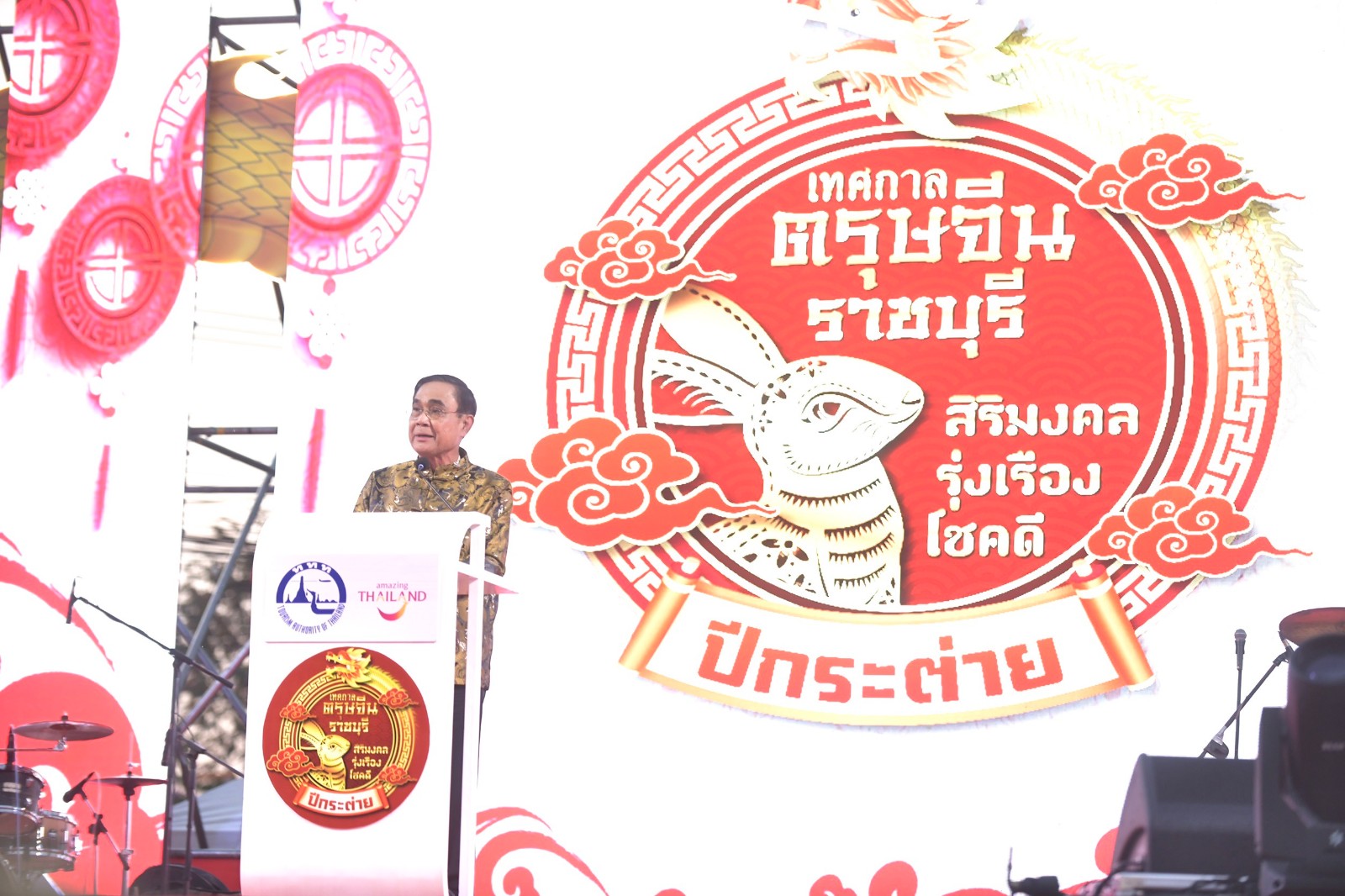
The Prime Minister said he was glad to receive the "happy Chinese New Year mascot" from China, which brings good wishes to the Thai people in the Year of the Rabbit. “I am full of confidence that bilateral exchanges in various fields will deepen and tourism cooperation will recover in an orderly way in the coming year.”
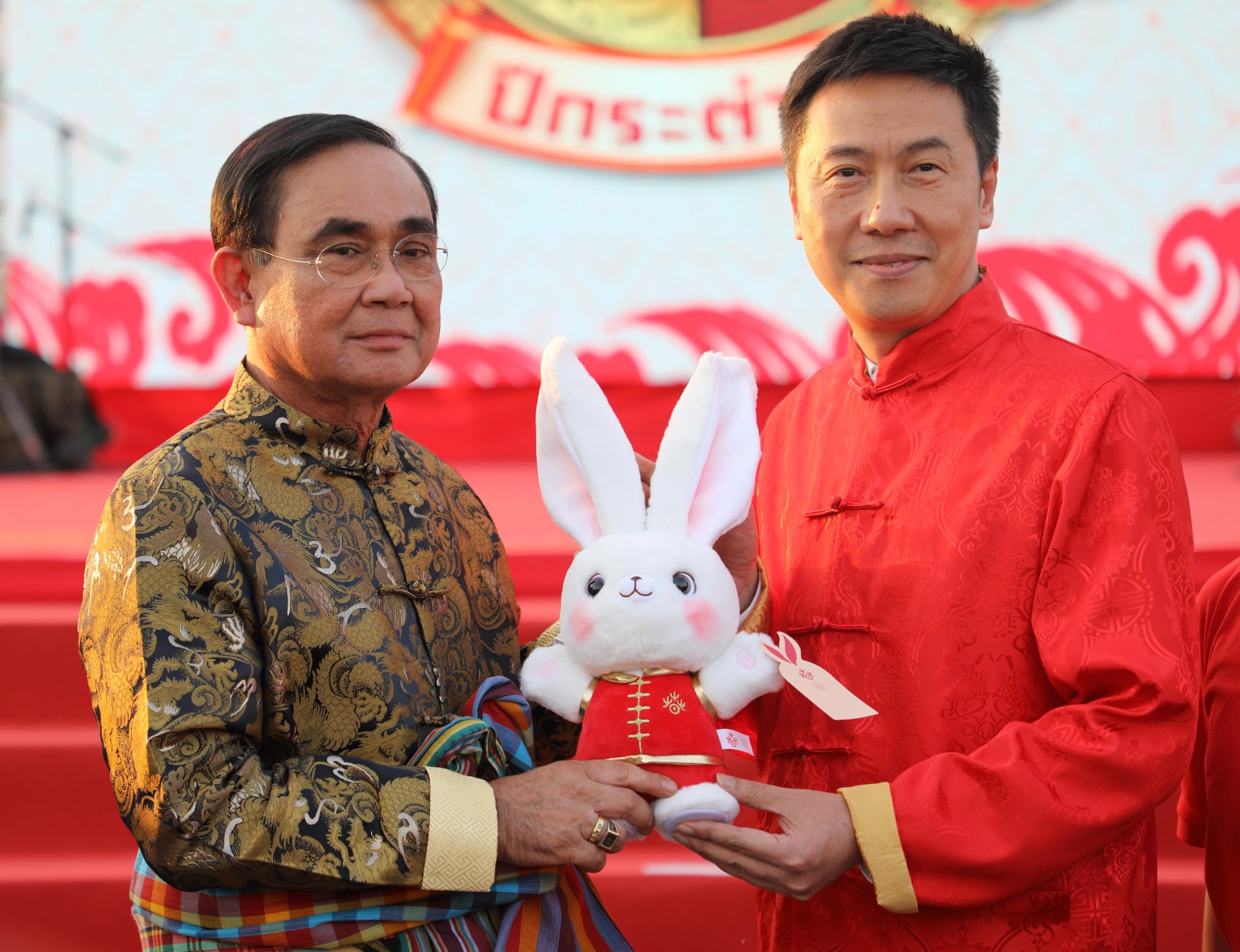
Prayuth beat drums with both hands, and the activity was officially launched. Afterwards, he went to the Spring Festival temple fair with great interest, enjoyed the Chaozhou opera, waved a huge shovel to cook rice flour with Chinese and Thai guests, and worshipped the land god according to the traditional Thai Chinese customs.
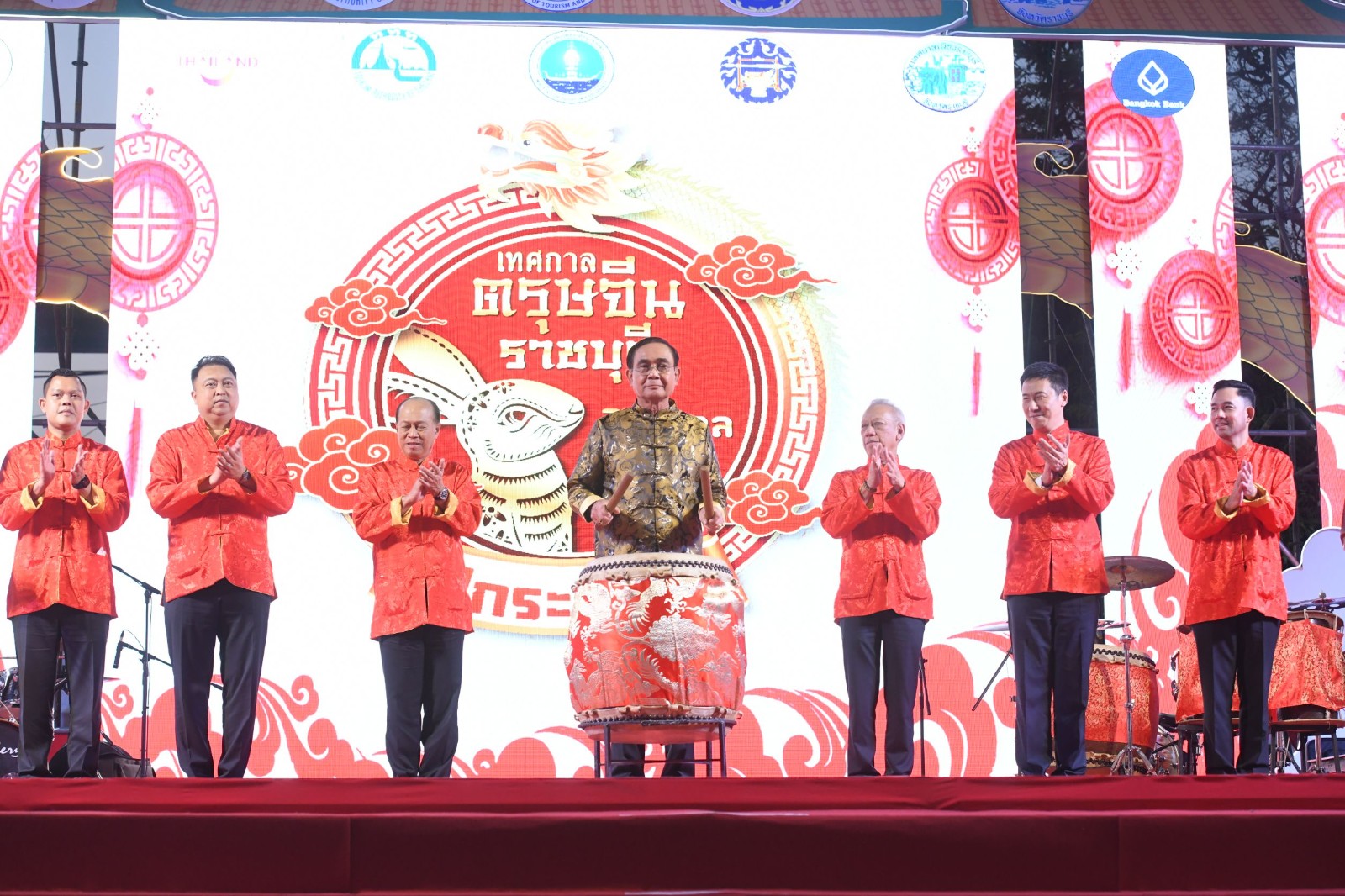
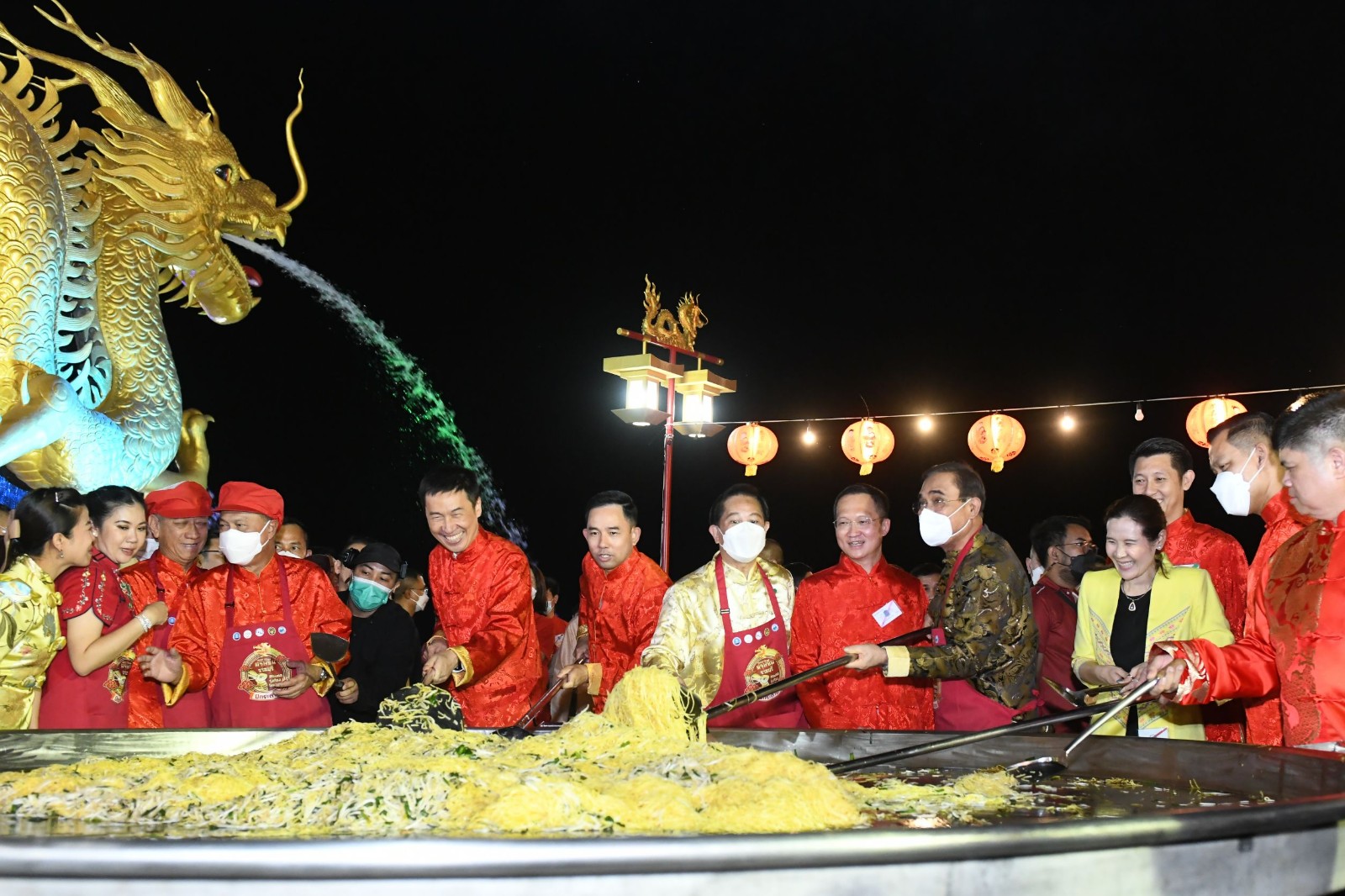
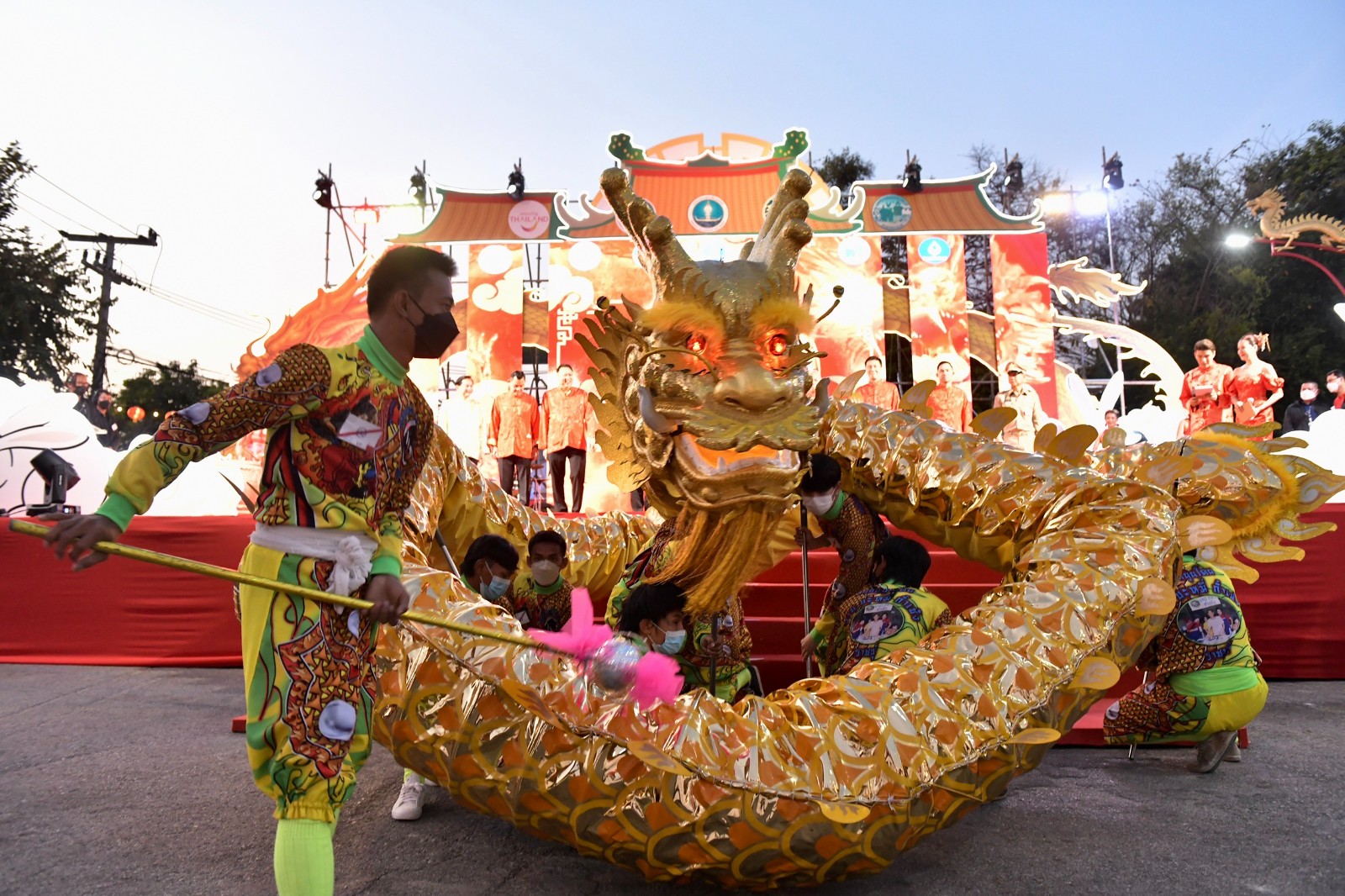
Also present at the ceremony were Phiphat Ratchakitprakarn, Thailand’s Minister of Tourism and Sports;Ronnaphob Ruengphairote, Governor of Ratchaburi Province, as well as senior officials and key figures from the Thai public and private sectors.
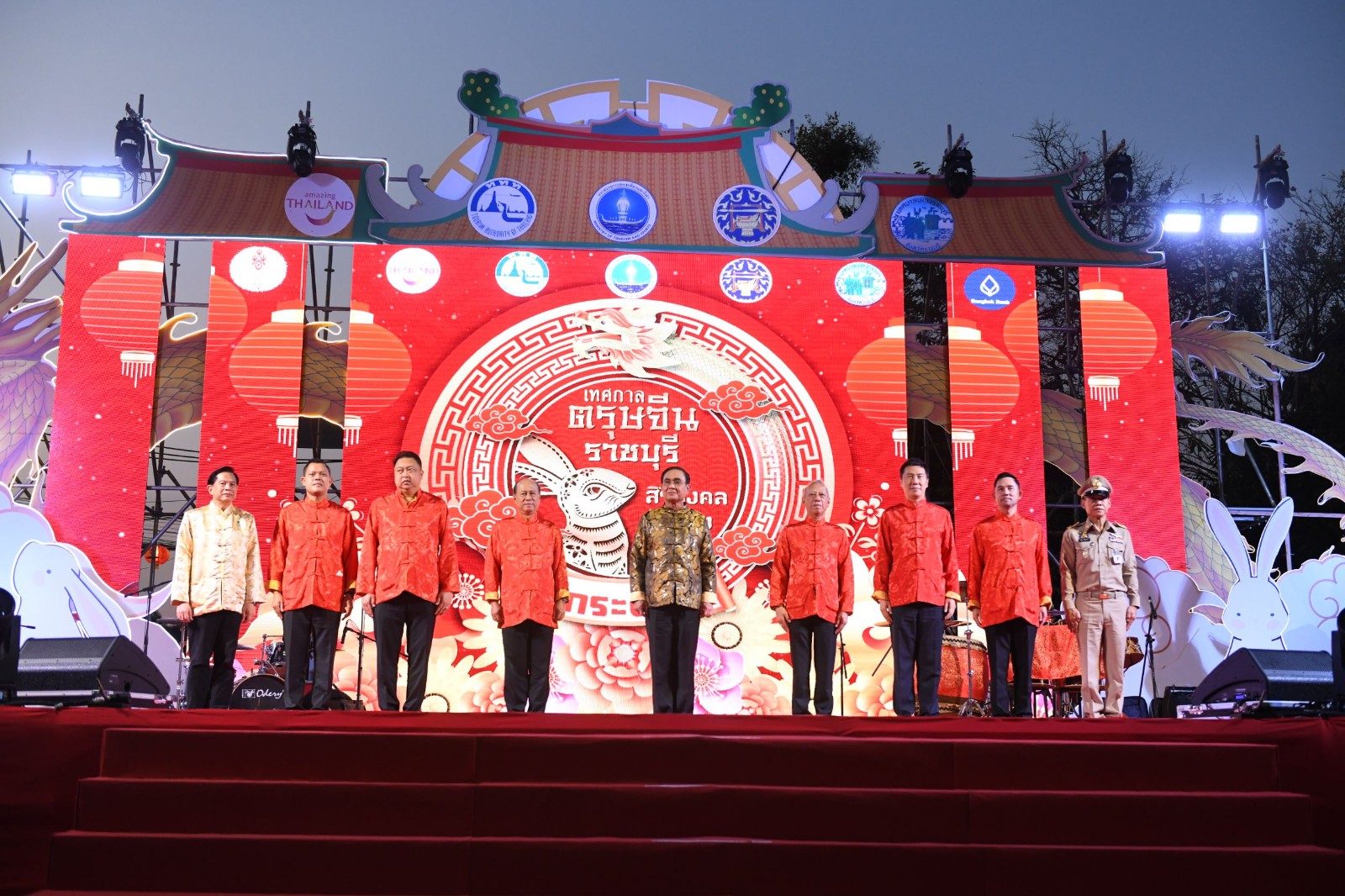
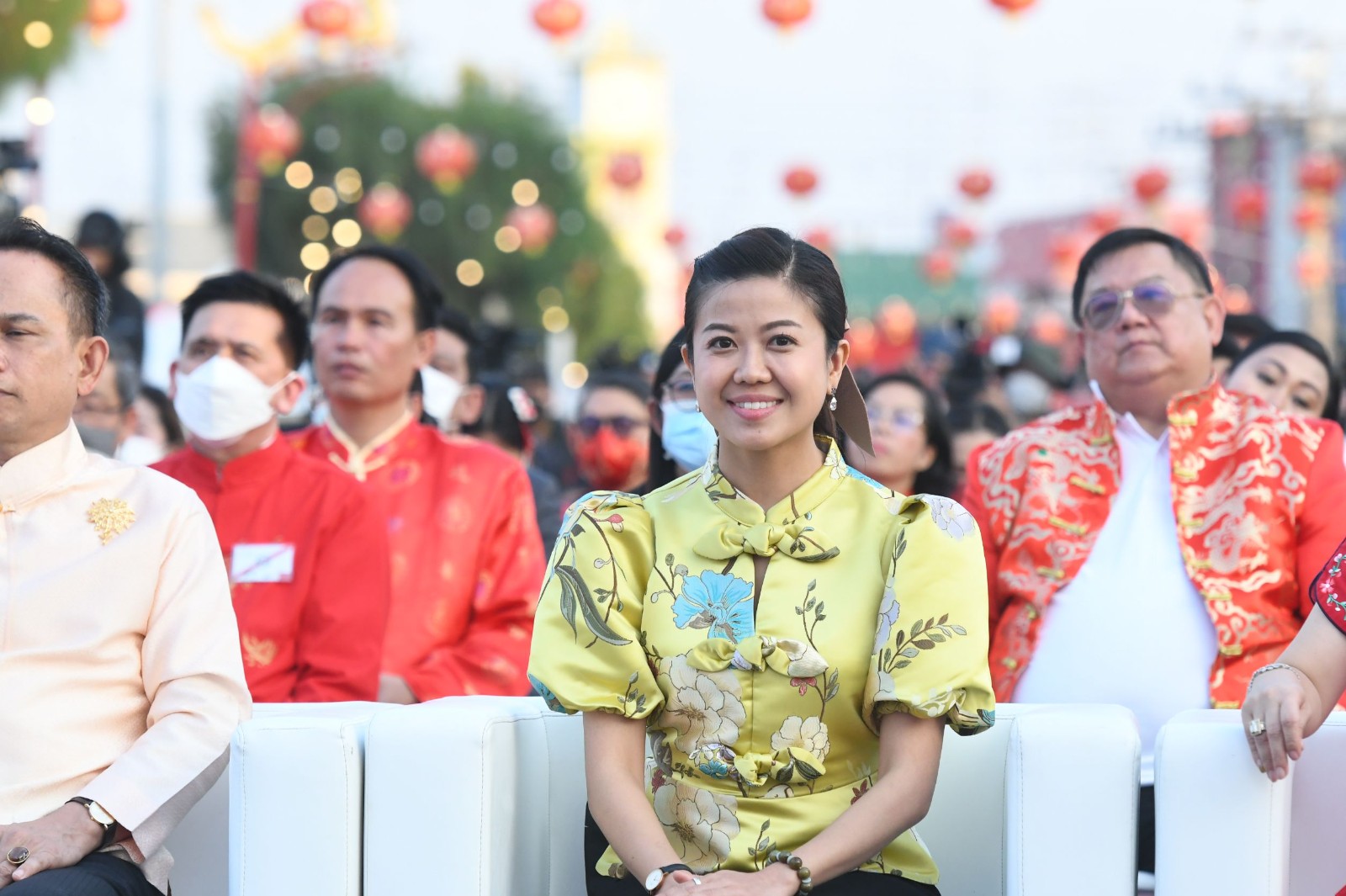
Phiphat said, “As one of the oldest and largest Chinese communities in Thailand, Ratchaburi is known for its unique character and identity that is strongly influenced by Chinese culture. Here, the local people continue to preserve its well-integrated culture and traditions through such annual festivals as the Chinese New Year.”
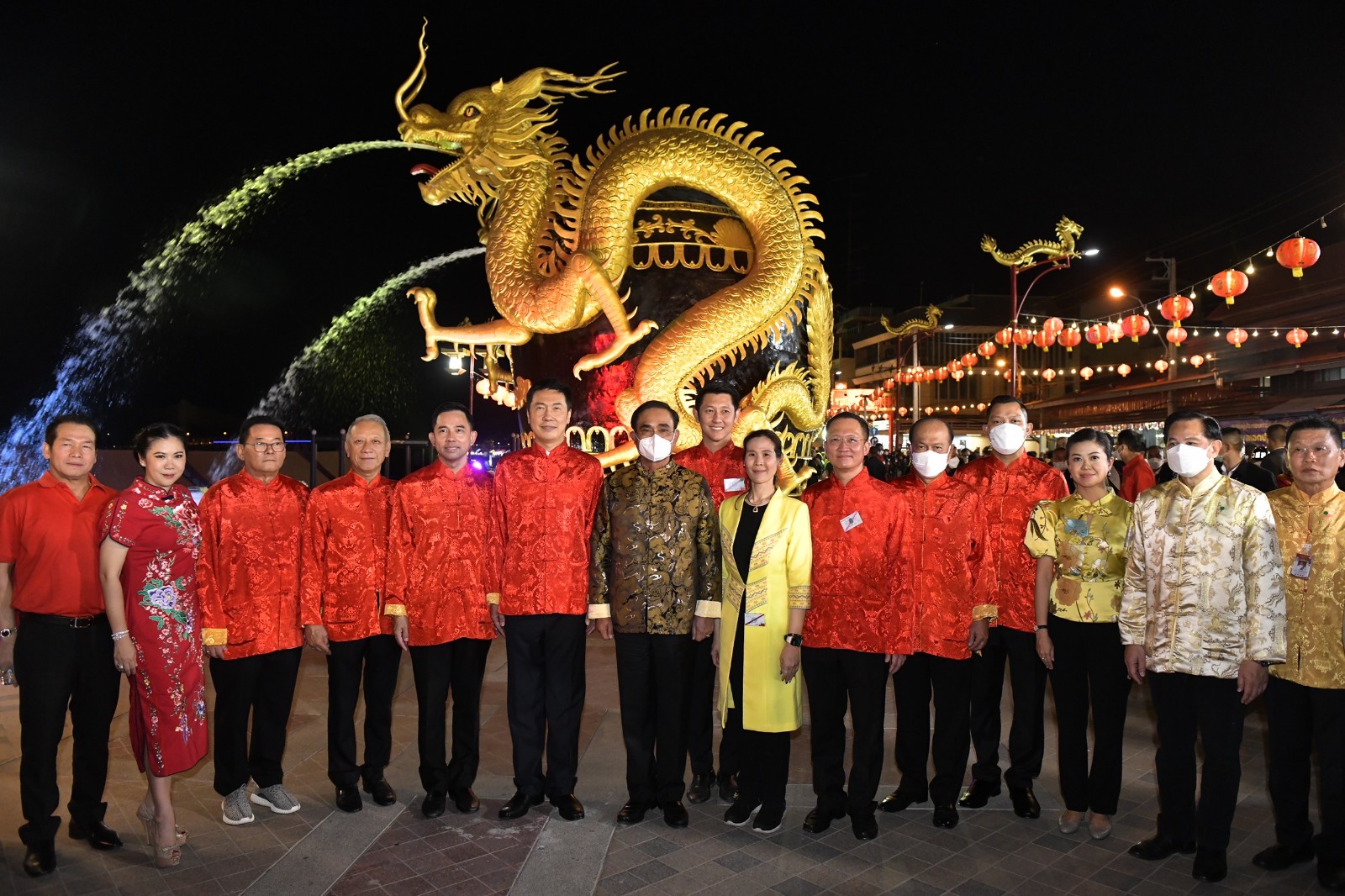
The Chinese New Year 2023 celebration in Ratchaburi is among the festivities in Bangkok and four other provinces with large Chinese communities – Nakhon Sawan, Suphan Buri, Songkhla (Hat Yai), and Phuket – supported by the Tourism Authority of Thailand (TAT) to honour the 48th anniversary of diplomatic relations between China and Thailand.
In Bangkok, the Chinatown Chinese New Year 2023 runs from 14 January to 15 February. The festivities in the four provinces are as follows: Nakhon Sawan – Pak Nam Pho Chinese New Year 2023, from 15-26 January; Suphan Buri Chinese New Year 2023, from 21-31 January; Hat Yai Chinese New Year Festival 2023, from 21-24 January; and Phuket – Chinese New Year Festival 2023, from 27-29 January.
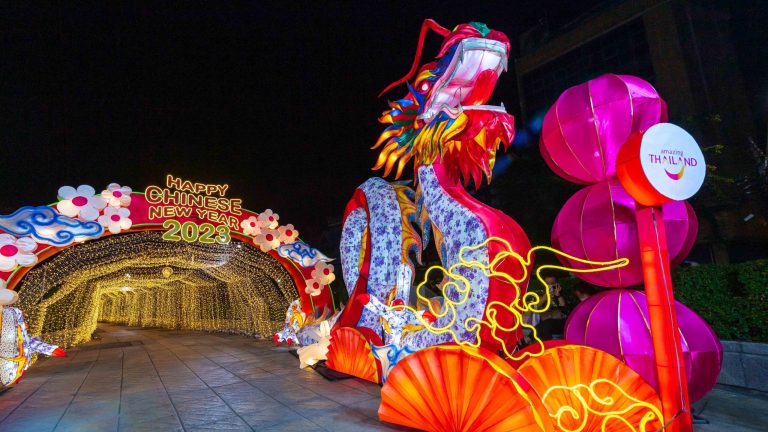
TAT estimates that the Chinese New Year 2023 celebrations, will help generate 21 billion Baht for the Thai economy through an array of activities, including travel and tourism related expenses, to paying homage to revered Buddhist images for blessings, at destinations across Thailand.
During the period, it’s expected Thailand will record 1.38 million domestic trips and generate about 4.6 billion Baht in tourism revenue, and welcome about 580,000 international tourists to Thailand– mostly from Southeast Asia – and generate approximately 16 billion Baht.